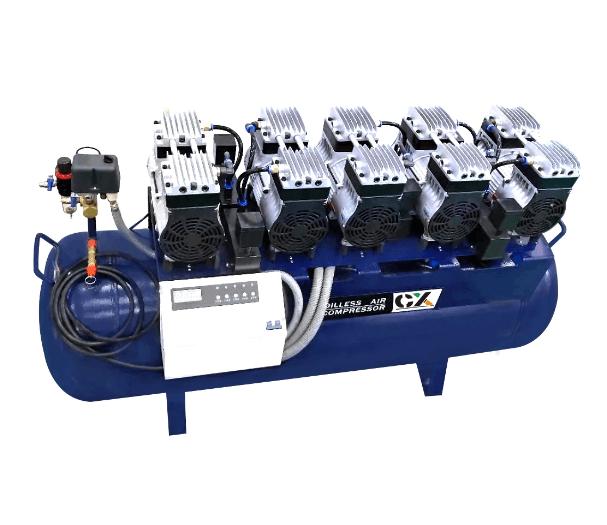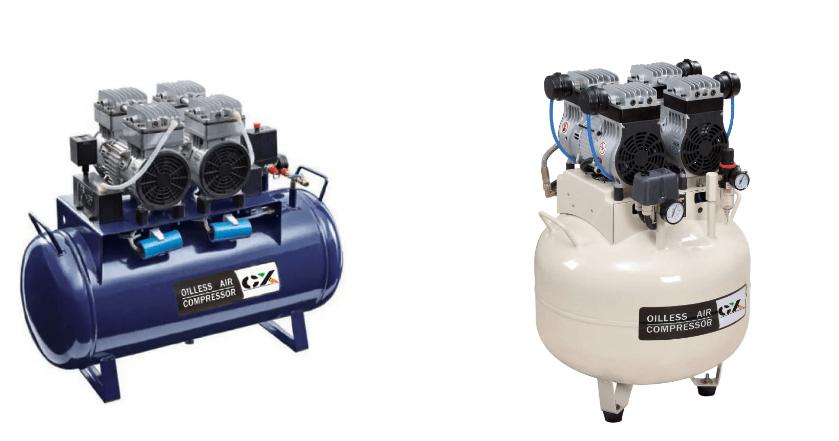A dental air compressor is an essential piece of equipment in any dental clinic. It powers many dental tools, including dental handpieces, air syringes, and scalers. Choosing the right dental air compressor can ensure smooth and efficient dental procedures, making it an important investment for any dental practice. In this post, the author would list 6 steps to
The first step is to determine which type of dental air compressor you use. There are two main types of dental air compressors: oil-based and oil-free.
●Oil-based compressors use oil to lubricate the moving parts. Compared with the oil-free compressor, it is more durable and generates higher air pressure, which is perfect for the use of larger dental clinics.
●Oil-free compressors are typically quieter, require less maintenance, and are more expensive. Additionally, dental air compressors can be classified as single-stage or two-stage compressors, depending on the number of cylinders in the compressor.

Dental Air Compressor for Sale
The airflow rate is one of the most important factors to consider when purchasing a dental air compressor. It measures the amount of air the compressor can deliver and is usually measured in cubic feet per minute (CFM). The higher the CFM rating, the more air the compressor can deliver. Dental procedures require a constant supply of air, so it's essential to choose a compressor with a sufficient airflow rate.
The tank size is another important factor to consider. It determines how much air can be stored and used during a procedure. A larger tank size means more air can be stored, reducing the need for the compressor to run continuously.
This can help to extend the life of the compressor and reduce energy costs. However, a larger tank size also means a larger compressor, which may not be suitable for all dental clinics.
Dental clinics require a quiet environment, and noisy compressors can be disruptive. When purchasing a dental air compressor, it's important to consider the noise level. Oil-free compressors are typically quieter than oil-based compressors, but they are also more expensive.

Proper maintenance is essential to ensure the longevity of the compressor. When purchasing a dental air compressor, consider the maintenance requirements and how easy it is to perform routine maintenance. Additionally, the durability of the compressor is important as it can affect its lifespan and overall value for money.
The cost is always a consideration, and dental practices need to balance their budget with the features they require in a compressor. It's important to consider the long-term cost of ownership, including maintenance costs and energy costs, as well as the initial purchase price.
In conclusion, dental air compressors are an essential piece of equipment for any dental practice. Choosing the right compressor can ensure smooth and efficient dental procedures, while regular maintenance can extend the life of the compressor. By following the above 6 steps to choose the air compressor, you can make an informed decision when selecting a dental air compressor.